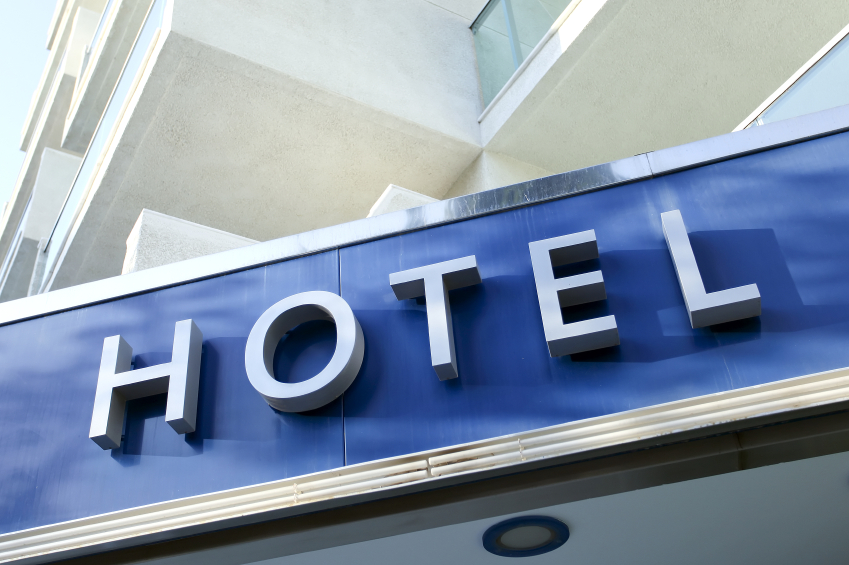Hotel Guest Safety: Foreseeing the Unforeseen

By Victor P. Haley, Partner, Sutherland, Asbill & Brennan LLP
In confronting the very real threat of a terrorist attack, hotels also face a range of complicated related issues. What is a hotel's liability to its guests if an attack occurs on the hotel premises? How proactive must hotel management be in anticipating and thwarting an attack? How do the additional security measures taken by hotel management get funded?
Hotels are unique in their openness and availability to the public. Anyone entering an office building in New York City post 9/11 confronts an elaborate set of security procedures. On the other hand, there are no obstacles to walking into any major hotel in New York. In fact, anyone can enter freely with luggage which is not checked or screened. The reason for the distinction is simple - the very essence of a hotel is to be a gathering place for overnight guests and their invitees, as well as others who want to dine, drink or meet at the hotel. The imposition of overt and restrictive security measures in a hotel can greatly disrupt these activities and adversely affect the guest experience. Hotel operators must therefore weigh the guest experience, and resulting profits, against greater security. In other parts of the world, hotels have had to perform this difficult calculus and have installed metal detectors at hotel entrances and instituted other security measures that restrict the ability to enter and move freely within hotels.
As one would imagine, there is a substantial body of law regarding the duty of a hotel operator, or innkeeper, to protect its guests from harm while they are guests of the hotel. While the law does not generally require an innkeeper to anticipate and prevent unusual and unexpected events, the law does impose a requirement on innkeepers to prevent those activities which it should reasonably discover or anticipate. This notion of "foreseeability" is the consistent theme throughout the case law in this area For example, a court has held that a hotel could be liable to a guest for injuries suffered in an attack just outside the front of the hotel because the hotel had knowledge about the amount of crime in the surrounding neighborhood yet failed to warn its guests of the danger. Other courts have held an innkeeper liable for failure to monitor and police intruders to the premises. On the other hand, courts have held that a hotel was not liable for injury to a guest in the lobby when attacked by someone who just walked in off of the street because the hotel could not have reasonably foreseen that such an attack might take place.
The concept of foreseeability is of limited utility in evaluating the responsibility of a hotel operator to prevent a terrorist attack on its hotel. Terrorism derives its awful power from the sudden unexpectedness with which it occurs, making it extremely difficult to anticipate and prevent an attack. Yet, once an attack occurs, all are on notice as to the ways and methods of the attack. While perhaps no one would have reasonably anticipated the car bombing in front of the Marriott Hotel in Jakarta or the bombing of a club in Bali, now we all know such events can occur. We now also know that "soft" targets such as hotels, restaurants, shopping centers and nightclubs are fair game to terrorists. Does that knowledge put every hotel operator on notice and require each operator to take measures to prevent a similar event from occurring at its hotel? What about new forms of attacks? What if a suicide bomber walks into a hotel lobby with a piece of hand luggage and detonates it? One can argue that such an attack is reasonably foreseeable in light of the increasing frequency of suicide bombings throughout the world. It would be virtually impossible, however, for a hotel to monitor each piece of luggage and every package coming into the hotel.
All of this leaves the hotel operator in the unenviable position of trying to foresee the unforeseen. How does an operator protect its guests and minimize its liability in this uncertain and ever changing environment? First and foremost, an operator should make sure that it has access to the best information available. It should carefully review all Homeland Security bulletins and local law enforcement advisories and respond to any specific recommendations. An operator should also remain aware of what security measures are being employed by similarly situated hotels. One way to create potential liability is to fail to enact measures being generally employed by others.
A hotel operator should also perform an inventory of the unique security issues presented by its hotel. Failure to consider and plan for these unique features could create liability for the operator. For example, a parking deck under the hotel is of particular concern, and an operator should carefully monitor access to the garage and the length of time cars remain in the garage. An operator may wish to prohibit self parking in an underground garage and to check the trunks of all cars which it valet parks. An operator should also insure that the hotel HVAC and water systems are secure from tampering. Another potential area of concern is the front entrance to a hotel. If the entrance is designed in such a way that it is freely accessible to cars, or a motivated driver could even crash through the door into the lobby, then the operator should consider placing appropriate decorative impediments much like you find at the entrances to recently constructed federal buildings.
A hotel operator might also consider implementing a range of new security procedures, such as more security cameras, random i.d. checks or prohibitions on unattended luggage in public areas. In considering additional security measures, an operator should give careful consideration to the training of its employees and the adequacy of its staffing. Nothing is more certain to create additional liability for the operator than instituting new security measures but failing to carry them out effectively. An operator should consider posting security procedures in guest rooms so that guests are adequately informed if an act of terrorism occurs.
Heightened security and the associated employee training can be costly, so it will be important to ensure that there are adequate funds to cover these costs. A hotel operator should include these costs in its operating and capital replacement budgets. Since a hotel owner will be expected to pay for these costs either out of its pocket or by diverting hotel revenues, there will undoubtedly be some tension between the owner and the operator about the necessity of some of the new security measures. The operator must convince the owner that these additional costs are like buying an insurance policy against liability if a terrorist attack occurs. If a hotel has taken all reasonable measures to protect its guests from events it could reasonably foresee, it is unlikely that any court would hold it liable for events that could not have been foreseen or anticipated.
Hotels are operating in an unchartered legal environment when confronting the increasing threat of terrorism on its premises. Existing law has not yet fully considered the obligations and duties of an operator to prevent an attack. Operators can expect, however, that over time the present emphasis on foreseeability will be extended to these sorts of events so that the liability test will be whether the operator could have reasonably foreseen the risk and reasonably prevented it. As a result, a savvy operator should be diligent in evaluating risks, learning about what steps similarly situated hotels are taking and developing appropriate security measures which can be consistently implemented.
Victor P. Haley is a Partner at Sutherland, Asbill & Brennan LLP. He practices in the hospitality, golf course and resort areas. Victor represents large hotel operators and owners in acquisitions, dispositions and development. He has represented InterContinental Hotels Group in the investment in the Cayo Largo Resort in Puerto Rico, acquisition of the former Ritz-Carlton on Central Park South in New York, and the acquisition of the Stephen F. Austin Hotel. Victor has assisted InterContinental with the development of hotels and resorts in Miami, Minneapolis and Puerto Rico. Mr. Haley can be contacted at 404-853-8302 or [email protected]
Republished from the Hotel Business Review with permission from www.HotelExecutive.com






